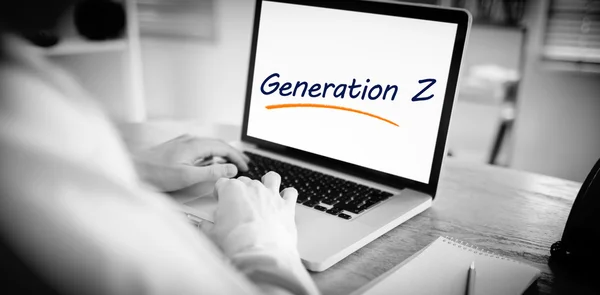Are You Ready For Generation Z?
Have you ever wondered who Generation Z is? Gen Z or iGeneration constitutes of people born between 1996 and 2015. Many of Z‑ers are out of colleges, starting careers and or starting families. Employers need to understand the traits of Generation Z as this group has a crucial impact in the workplace and needs to be properly managed because they are the future workforce. Generation Z will flood the job market before you know it. They come in a globalization age where almost everything involves technological gadgets which make work easier and an online presence is fundamental for success. Companies need to get digital, stress on career development, give regular feedback, foster wellness and work -life balance. Some of the characteristics of Generation Z are tech native, values flexibility, diverse, mental health champions and competitiveness.
Tech Native
Generation Z are more tech savvy than the previous generations. Generation Z grew up exposed to smartphones and fully utilizing the social media both in their professional lives. Research shows that 95% of Generation Z owns smartphones. They feel cosy using internet to work, research and interact. This enables them to seek knowledge as learning has been made easier with the availability of Google and other applications that foster learning like YouTube. In fact, most of them enroll in virtual short courses to boost their careers. They prefer working for companies that prioritizes technology and mobile engagement strategies. This is a factor they keenly consider while job-hunting. However, they prefer face-to-face communication at workplace despite being born in a technological era. On the negative side, technology has led to feelings of isolation and underdeveloped social skills. Generation Z is known as the “lonely generation” as they spend most of their time glued to television and mobile phone screens.
Values Flexibility
After the corona-virus pandemic, companies are re-opening and employees are getting back to the offices. Some companies have formed a hybrid working environment. Generation Z has become more vibrant in championing for remote and hybrid work environment as they appreciate work-life balance and competitive packages as opposed to the traditional 9-5 and work from office culture. They want to have control of their career journey. Generation Z are also attracted to benefits like medical covers, long vacation breaks, paid parental leave, free food and happy hours. To most, results justify the means and employers and supervisor should delegate a task and let them work independently most preferably, remotely. Gen Zers wants the ability and autonomy to work remotely but also still maintain a physical interaction with new colleagues. Nonetheless, they are okay forming and developing relationships online without necessarily having a physical connection. This has been geared by easy access of smartphones, high-speed internet and social media. Companies should take into consideration work flexibility and ensure work -life balance to retain this generation.
Diversity
Generation Z is the most diverse group and has distinct values and views in the workplace. They believe that diversity and inclusion in workplaces, not just by age, race or gender but also in terms of personality, will increase productivity and the overall good in the community. Diversity and inclusion is a factor in their job hunting checklist. To Generation Z, equal pay for equal work, gender neutral facilities and racial inclusion should be a top priority to employers. Organizations should adapt their culture to accommodate Generation Z.
Mental Health
Generation Z values mental well-being and thus prefers a toxic-free working environment. Research shows that Generation Z is more likely to report mental health issues as compared to the millennial generation and seek therapy. Sexual harassment, racial discrimination, and students’ loans among other issues top the list of causes of stress to Generation Z. They also do not tolerate authoritative or toxic leaders as they are used to sharing their thoughts publicly and getting feedback instantly. They expect their ideas and thoughts to be heard and respected. Generation Z want employers to address mental health issues as they are conscious of effects of poor mental health. Employers should create stress awareness, provide stress management resources, support medical health campaigns and work-life balance to attract and maintain Generation Z.
Competitive
Generation Z are needless to say competitive and enjoys healthy competition. This can be associated with their solid necessitate for acceptance in workplaces. Generation Z takes risks as they grew up in an economic recession. Generation Z is also motivated by stability that comes with well-defined job description and compensation packages. They hold dear clear expectations about how to realize success and career advancements. Companies should encourage healthy competitions in the workplaces to motivate Generation Z.
Conclusion
In conclusion, Generation Z is unique and has a number of characteristics that make them distinct as compared to the prior generations. They are tech native, flexible, diverse, values mental health and are competitive. With these, employers should strive to understand the traits and preferences of Generation Z as they will dominate the workforce in the coming years. Companies should create a culture that promotes the strengths of the Generation Z in order to attract and retain them. This is because Generation Z will be amongst the most indispensable asset a company can have in a globalized and technologically developed era.


